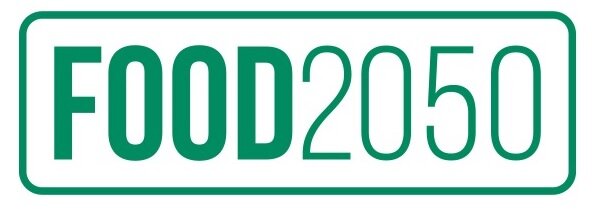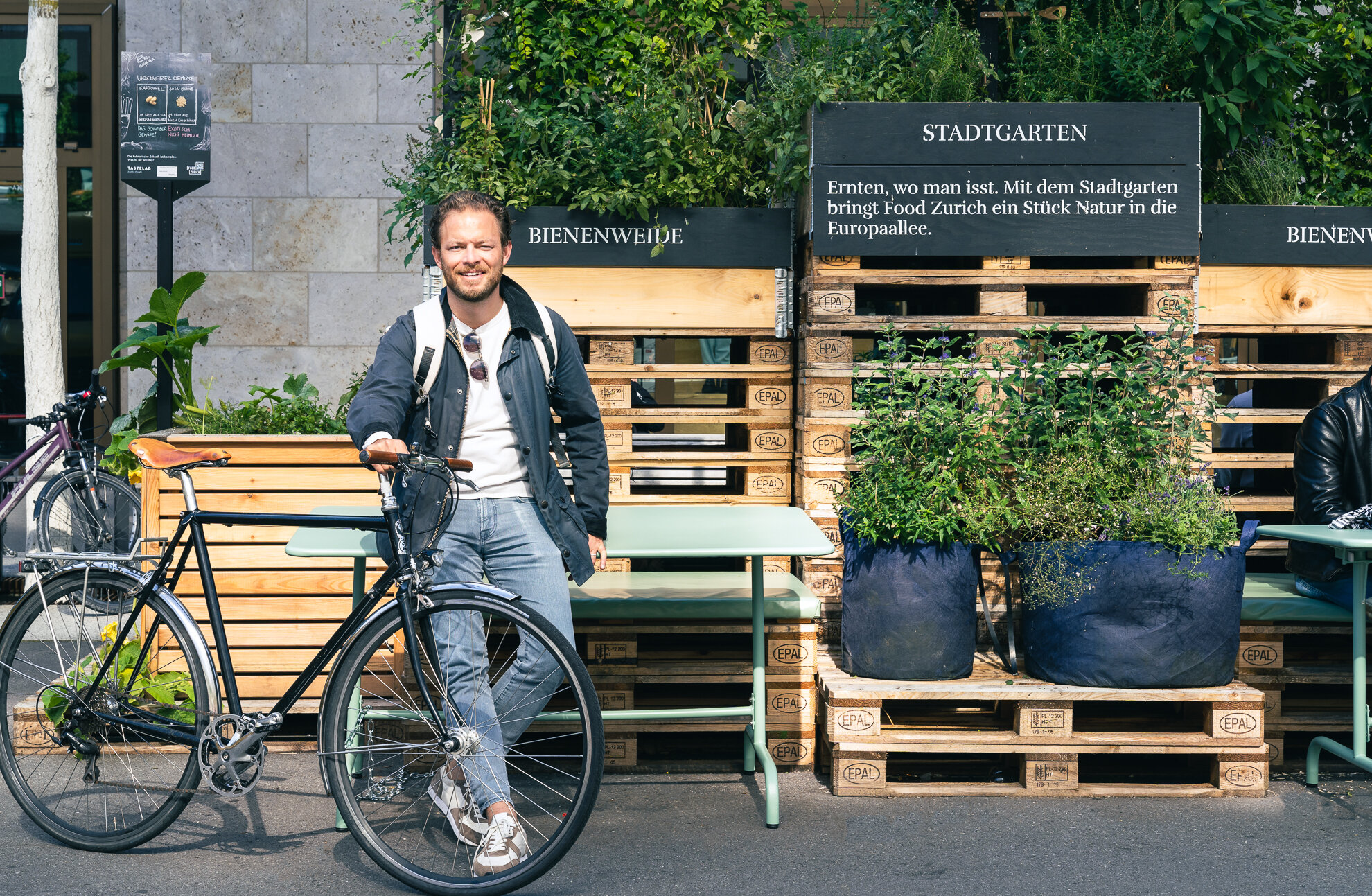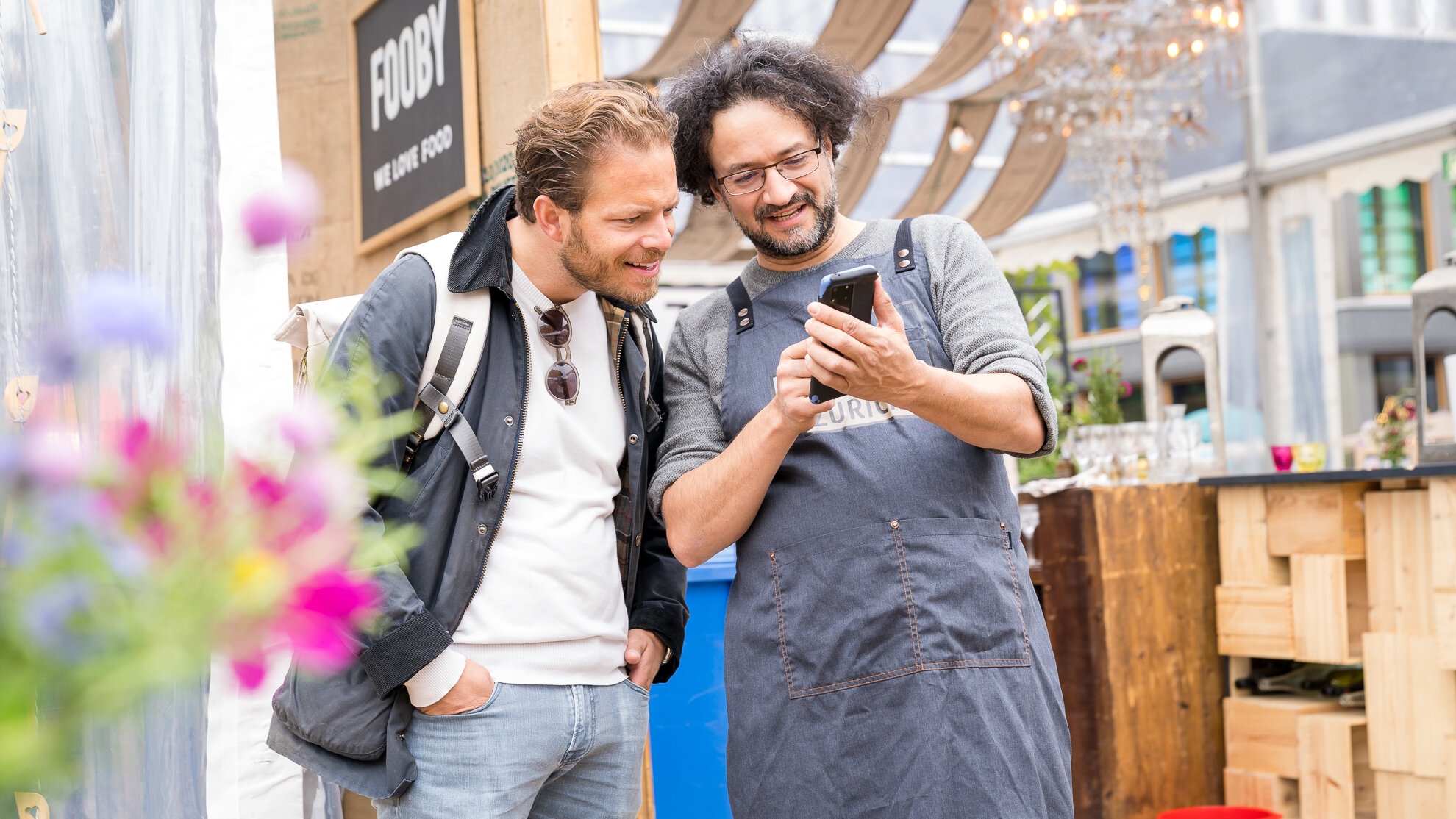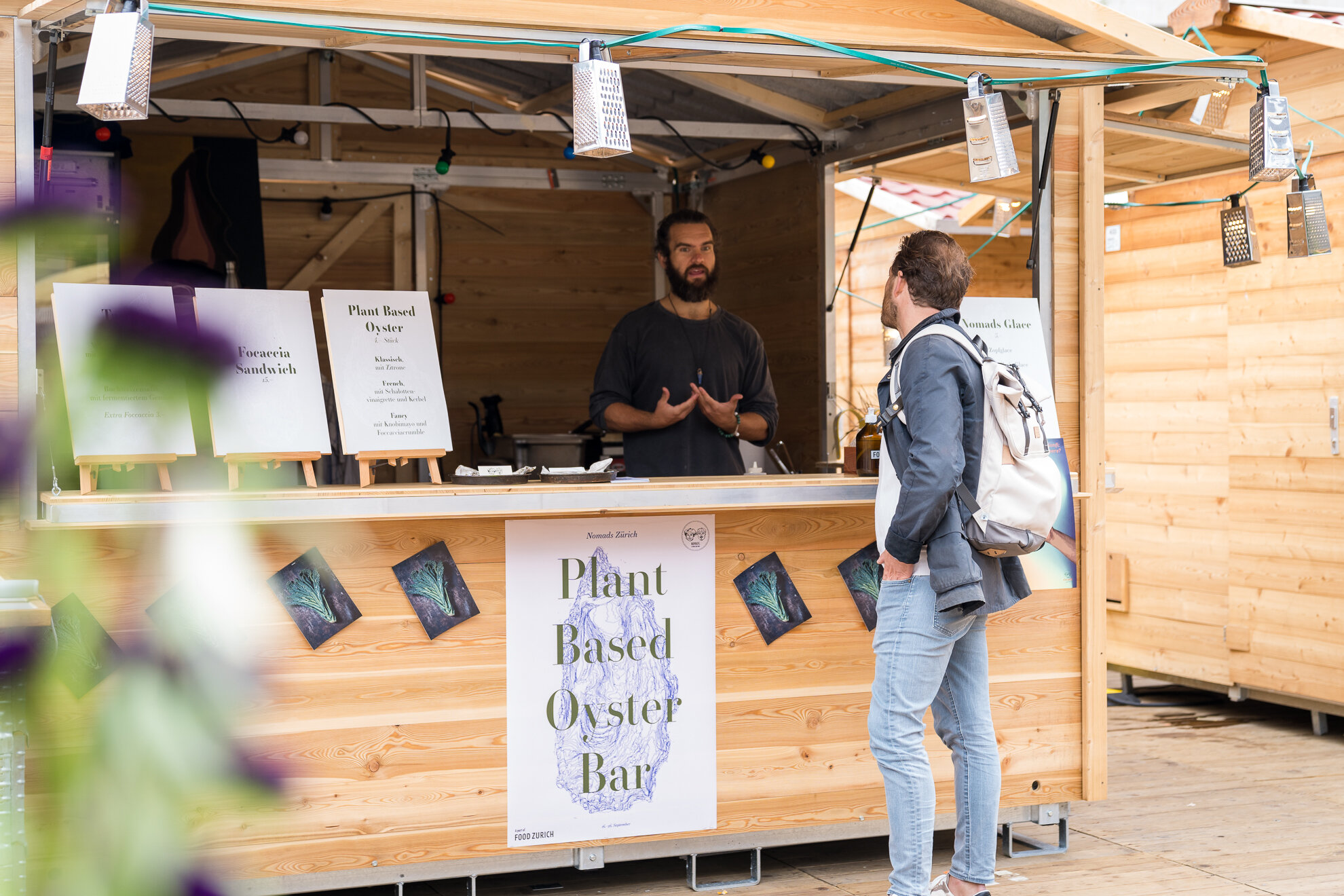"Our food system needs an urgent overhaul"
With the digital platform FOOD2050, which scientifically calculates environmental impact points of menus and thus aims to promote more sustainable consumption behavior, restaurateur Christian Kramer and his partners want to revolutionize the current food system. In partnership with the Zurich Women's Association (ZFV- Zürcher Frauenverein), they are launching a pilot operation at the Irchel canteen of the University of Zurich (UZH), offering specially developed, innovative and environmentally sustainable meals.
Christian Kramer, 40, rides his bike to Food Zürich on Europaallee. As soon as he arrives on the premises, he is called, greeted and brought up to speed. People here know the Zurich restaurateur, who two years ago was himself standing behind the grill touting the American and popular vegan Beyond Burger. Kramer was the first to bring the plant-based patty to Switzerland with Helvti Diner. A treat for vegetarians, vegans and even meat lovers. For Kramer, this was the "initial spark" to focus on plant-based and sustainable products in the restaurant business. This was followed by a variety of plant-based creations at the burger joint, such as milkshakes and hot dogs - until the pandemic hit. The plan was to reopen the diner with a fully plant-based menu after the Corona shutdown. But the crisis put expansion plans on hold for the time being, after which the Helvti Diner restaurant chain eventually found new owners.
Christian Kramer (left) chatting with Oscar Wolf, Operations Manager of Food Zurich.
Turnaround instead of defeat: Kramer's vision gets a new start. With his business partners Adrian Hagenbach and Leopold Weinberg, he is presenting his new project FOOD2050 today. Their goal: to improve food consumption in terms of sustainability and health through transparency and dining innovations. "If population growth continues at the current rate, our food system will collapse by 2050, which is less than 30 years away. Food accounts for about a third of our ecological footprint. That's where we want to make an impact," says Kramer.
His approach: a tool that uses the EP (Eco-Points) scientific rating system to evaluate recipes according to their environmental impact and demonstrating a direct comparison of the national meal average in EP. The evaluation of the menus is intended to show how environmentally friendly recipes or food products are and is available to producers, restaurateurs and consumers alike.
Christian Kramer walks through the stands at Food Zürich, looking for exciting offers. Privately, he no longer buys meat; he eats it - when he does - exclusively in restaurants. "The development at Helvti Diner has set things in motion for me in terms of my understanding of sustainability and health in the food industry," Kramer says. Eventually, he stops at Planted Oyster Bar. Kramer immediately strikes up a conversation with co-founder John, and the two discuss how difficult it is to understand sustainability. Kramer explains it this way:
„Sustainability consists of three aspects: the environment, a social component, as well as an economic component. For a product to be considered sustainable, it must include all three elements. Our focus is on the environmental side, and with the FOOD2050 concept, we bring all stakeholders in the value chain to the table.“
The rating system is designed to highlight products that show greatest potential to make a difference, especially in the foodservice industry. The six-month pilot of FOOD2050 will start in collaboration with the Zurich Women's Association on January 10., 2022 at the UZH in the Irchel canteen. A FOOD2050 internal survey of students revealed great interest in the topic. "We were overwhelmed by the feedback," says Kramer. Consequently sixteen FOOD2050 recipes are being tried out during the testing phase. Using a QR code, students can quickly and easily access information on environmental impact, origin, nutritional values, processing methods and more. At the same time, they can follow the progress on an on-site eco-friendliness ticker demonstrating how many Eco-Points have been saved collectively. The goal is to reach the masses and educate them on what they can achieve for the environment with their consumption habits.
The market is overrun with alternatives to animal products these days. "Unfortunately, there is a lot of greenwashing where the vegan label is just a marketing strategy. We want to put a filter on the market, bring in more transparency and highlight products that make sense to us," Kramer explains. For the launch, "Eat Planted" with meat substitute products, "New Roots" with cheese made from cashew and "Nestlé" with a tuna alternative are on board among others. In addition to the latest food innovations, FOOD2050 also sees the importance of local producers. With this in mind recipes have been created with organic baked goods from the Neufeld bakery in Schlieren, edamame from Seuzach and rescued vegetables from Centrale Végétale.
Christian Kramer curiously slurps vegan oysters prepared from mushrooms. Time will only tell if his new idea takes off; talks about expansion plans are already underway. "We are convinced it is a step in the right direction. We know our method isn't perfect, but it's overdue for the food system to be disrupted. We have to start somewhere and learn from it as quickly as possible and improve along the way," Kramer appeals.
FOOD2050 founder, Christian Kramer, in conversation with journalist Pauline Broccard.
What is FOOD2050?
Globalization and continued population growth are pushing our food system into a bottleneck. The Food and Agriculture Organization of the United Nations (FAO) estimates that the world's population will grow to over 9.1 billion people by 2050, and that food systems around the globe will consequently collapse.
FOOD2050 aims to combat this with more transparency in the food industry and focuses its vision on sustainable and healthy food consumption. The idea: to create new dishes with a minimal ecological footprint, to label them with scientifically based environmental impact points and to actively follow the progress on the FOOD2050 platform. In collaboration with the Zurich Women's Association (ZFV – Zürcher Frauenverein), Gastronomics and the ZHAW, Christian Kramer, Adrian Hagenbach and Leopold Weinberg aim to create an environmentally friendly global food system with FOOD2050 by means of networking and collaboration between all players within the value chain.








